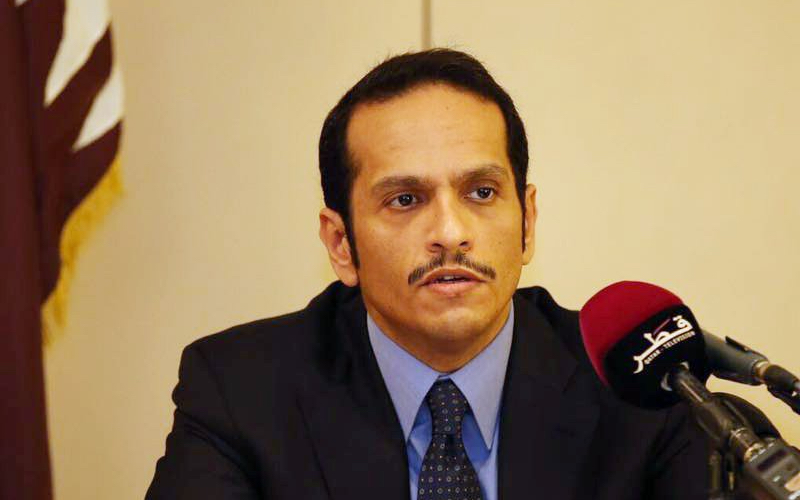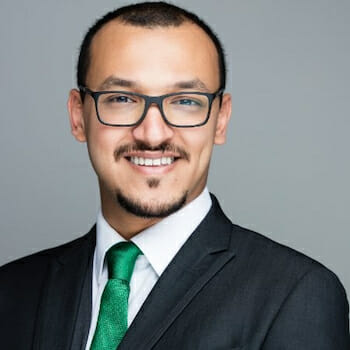
Making the Case Against Qatar in America
Last month, I opined in The Hill about why the Kingdom of Saudi Arabia and other brotherly nations are pursuing a policy to end Qatar’s role in supporting terrorism. Either Qatar changes its behavior immediately or the country will be cut off from the rest of its Arab neighbors. Doha faces ostracism from the very people that they came from centuries ago. It is an embarrassment for Qatar, and it is necessary to act against Doha’s betrayal.
The Qatar Insider (TQI @theqatarinsider) is a comprehensive source for information about the #QatarCrisis. Launched at the beginning of the #QatarCrisis, TQI exposes Doha’s treachery not only to Arabs but also to fellow Khaliji themselves and the Western World.
Doha has sponsored destructive figures across the Arab world, severely undermining Washington and its allies’ counter-terrorism efforts in the region. Qatar has supported Libyan individuals such as Abd al-Hakim Belhaj, whom Spanish authorities accused of being tied to the deadly 2004 terrorist attack in Madrid. Doha’s backing for extremists extends to groups which the U.S. State Department has designated terrorist organizations: Lebanese Hezbollah, Hamas in Gaza, plus terrorist groups/individuals in Iraq, Syria, and Yemen.
The Arab Gulf state has also permitted the flow of funds to Islamic State (Daesh), the al-Qaeda-affiliated al-Nusra Front, and other organizations that threaten regional and international security. For example, according to the Washington Times, al-Qaeda-linked figures such as Abdulharhman al-Nuaimi, Abdulaziz al-Attiyah, and Sheikh Abdullah al-Thani have received Qatar’s patronage. Overall, Qatar’s behavior in the Middle East through its financing of terrorism is a major cause of our region’s ills and must be stopped immediately. Moreover, given that Qatar bears substantial responsibility for Daesh’s ascendancy, it is in the U.S. interest to take seriously the concerns of Saudi Arabia and its regional allies which correctly understand Doha’s guilt.
For more than two decades Qatar has used media as a soft-power tool in its foreign policy through its state-owned Al Jazeera. This Doha-headquartered network has been a mouthpiece for Yusuf al-Qaradawi (a radical Egyptian-born cleric with naturalized Qatari citizenship, known as the Muslim Brotherhood’s spiritual head), the al-Nusra Front’s leader Abu Mohammad al-Jolanni (former emir of the Nusra Front and current military leader of Tahrir al-Sham), and other anti-Western extremists. By 2009, Qatar had already invested $1 billion in the state-owned network, which provides seemingly next to no coverage of Qatar’s domestic affairs.
At the same time, Qatar has taken partial ownership of Western news outlets such as El Pais (a subsidiary of Spanish PRISA Group), which has covered the ongoing GCC crisis with a pro-Qatar tilt. A Qatari, Sheikh Dr Khalid bin Thani bin Abdullah al-Thani (Vice-Chairman and Managing Director of Dar Al Sharq Group) is a member of PRISA Group’s board of directors. As U.S. officials address the promulgation of extremist ideologies in the Arab world, Qatar’s support for terrorism via media platforms requires action and rejection of Doha’s argument that Al Jazeera is a domestic matter.
Another aspect of Doha’s policies which warrant the attention of Western officials pertains to the plight of its foreign workers. Most of the foreign workers in Qatar hail from India and Nepal and represent the largest groups of people in the country which has a population of 2.7 million. Since the Qatar crisis erupted last month, many of these Indian and Nepalese workers have voiced their discontent over the authorities’ cancelation of their vacations due to the action taken by Doha’s neighbors, according to Reuters.
Although the death toll is debated, many foreign laborers have lost their lives working on construction projects for World Cup 2022 stadiums, including a British national who fell 130 feet to his death at Doha’s Khalifa International Stadium in January. DLA Piper produced a report commissioned by the Qatari government, which showed that 964 Indian, Nepalese, and Bangladeshi workers lost their lives in Qatar in 2012 and 2013. The report did not include the death toll of Filipino and Sri Lankan workers, who represent a sizeable portion of Qatar’s foreign workforce. In total, the International Trade Union Confederation estimates that 1,200 foreign workers have lost their lives in Qatar since the country won the World Cup bid in 2010.
Qatar’s Penetration of America
But there is more: TQI’s exposure of Qatar’s support for terrorists is about to take a deep dive on Doha’s investments in the United States.
Qatar’s current investments in the United States focus on real estate. From New York’s infamous Empire State Building to Washington D.C.’s City Center, Qatar’s terrorist monies sit right in front of America’s most famous banking and political elites. Houston has long been the focus of Qatari business because of the energy industry. Now Qatar is investing over 10 billion dollars into American Airlines in order to boost the terrorist state’s image. There is no doubt that Qatar is pumping tens of billions of dollars into the American economy that gives jobs to families whose sons or daughters are now in Iraq or in Afghanistan. Is that sensible?
In America, Qatar has invested $1.5 billion to construct Washington, D.C.’s City Center, a large-scale office, residential, entertainment and shopping facility in the heart of the U.S. capital. State-owned Qatar Petroleum has financed $2 billion to construct the Golden Pass LNG facility in Sabine Pass, Texas. Doha’s support for terrorist such as al-Qaeda may be mixed up in these investments. This is why a sustainable and comprehensive audit of Qatar is so critical.
Qatar, thru the Muslim Brotherhood, penetrated America years ago and is continuing to grow. We have seen Council on American-Islamic Relations (CAIR) and it links to Hamas and the Holy Land Foundation as a major incident of terrorist financing within the United States. These groups, used a pervasive atmosphere to infiltrate many U.S. government and non-government organizations in order to influence American policy at home and in the Middle East. These, yes, terrorist enablers are using their agenda to influence Muslim migrants and U.S. politicians from the federal to the state and local levels who believe that their cause is righteous. These people could not be more wrong. They are being led by a Pied Piper – from the children’s story tale — in Doha who is ultimately responsible for a global system of support for terrorism.
TQI’s attention to Qatar’s terrorist financing in the U.S. is next on the horizon. Americans should be aware how far a small country is willing to go to be in John Smith’s backyard on a warm Fourth of July.

